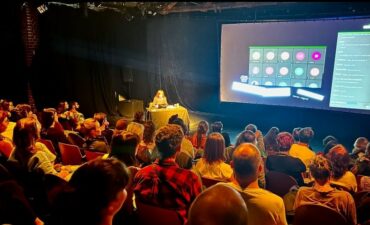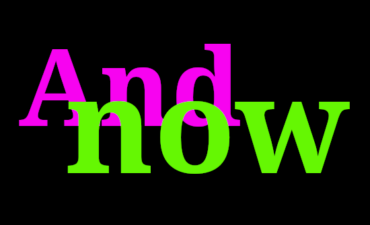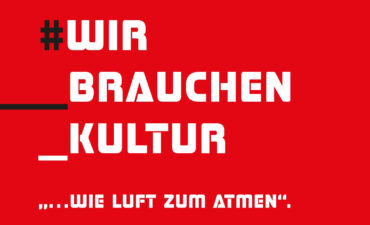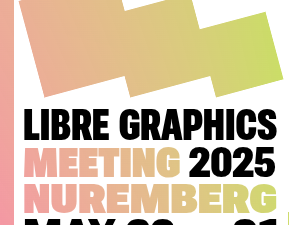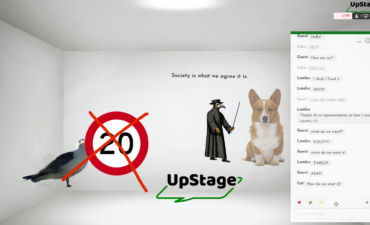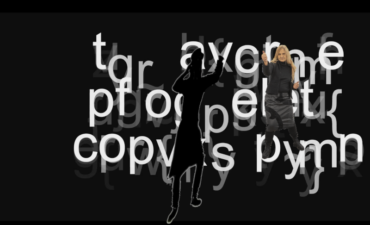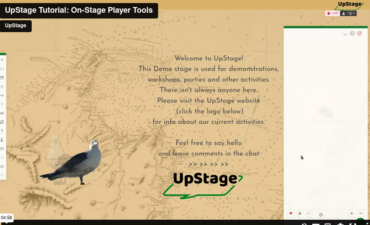World X was a virtual exchange project between a group of young people from Eltham Hill Secondary School in London, England, and from Westland High School, Hokitika, Aotearoa/New Zealand.
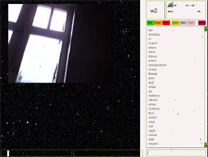 Participants: Vicki Smith, Linda Hutt and students from Westland High School [Hokitika] with Karla Ptacek, Surya Gupta and Eltham Hill College for Girls [London] after school programme.
Participants: Vicki Smith, Linda Hutt and students from Westland High School [Hokitika] with Karla Ptacek, Surya Gupta and Eltham Hill College for Girls [London] after school programme.
Duration: 3 x 2 hours networked performance [8am UK 7pm NZ]
Time Frame: 6 months, 11-13 hours time difference meant more asynchronous development with 3 synchronous events between the 2 groups
Key Locations: Harihari, Hokitika (West Coast, Aotearoa/NZ), London (UK)
Technologies:
- Interact: an Open Source Learner Management Software developed for education in Aoteaora/NZ includes file sharing, discussion, blogging and chat technologies this formed the asynchronous working environment
- UpStage: open source, cyberformance or networked performance space developed in Aotearoa/NZ by Douglas Bagnall and Avatar Body Collision (www.upstage.org.nz | www.avatarbodycollision.org)
- iVisit web conferencing tool
- and email.
The Project
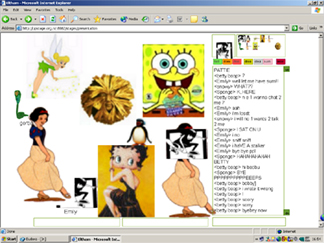 The project WorldX, devised by Karla Ptacek and Vicki Smith, developed between the two groups of students through asynchronous discussion and sharing of files [image, text, sound and video] while they learned how to develop artifacts for, and engage through, the newly developed online theatre space UpStage.
The project WorldX, devised by Karla Ptacek and Vicki Smith, developed between the two groups of students through asynchronous discussion and sharing of files [image, text, sound and video] while they learned how to develop artifacts for, and engage through, the newly developed online theatre space UpStage.
The two groups shared first stories about themselves and their place then collaboratively imagined a new world. They were aided and obstructed by an online entity HeRMiTT who was alternately played by Karla and Vicki so that the student’s exploration and development of performance could progress faster than would have been possible due to timeframe constraints between the two sites [HeRMiTT displayed the characteristics of someone up at alternately 5 and 3 am].
The West Coast group spanned ages from 10-16 while the UK group were all from the same age group 12/13. They shared many commonalities as teenagers and explored their very different contexts [rural and extremely urban communities]. Elements of identity with the recent immigrant nature of the Eltham group were contrasted with local iwi and pakeha.
The final performances were given for parents, teachers and interested community members, while the location was cyberspace the contexts of the remote participants underpinned the performances.

